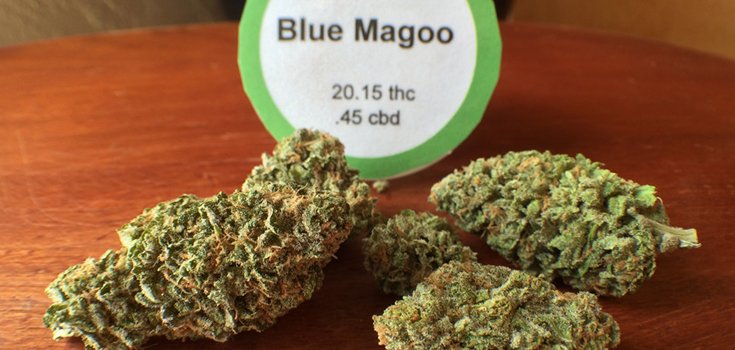Marijuana Strain Recalled in Oregon over High Pesticide Levels

The Oregon Liquor Control Commission (OLCC) issued its first-ever marijuana recall after samples of Blue Magoo marijuana were found to contain a level of pesticide residue that exceeds the state’s limit. The cannabis brand is sold at a Mapleton, Oregon, store. [1]

The OLCC, which oversees retail sales of recreational marijuana, said samples of Blue Magoo failed a test for pyrethrin levels. Pyrethrin is a mixture of six chemicals that are extracted from the Chrysanthemum cinerariaefolium plant. It’s considered a “natural” insecticide (and is sometimes used on organic products), but it’s far from safe. It’s toxic to mammals, especially cats, as well as fish and insects. It is also toxic to bees. [1], [2]
Read: Is Your Marijuana Laced with Pesticides?
A factor in the recall is that marijuana growers must comply with an unfamiliar regulatory system that they haven’t faced before. Since marijuana is still illegal under federal law, the government has not established allowable tolerances of pesticides in pot, leaving states to figure it out for themselves. Oregon tests pot for 59 active ingredients. [1]
The recalled weed was grown by Emerald Wave Estate in Creswell, Oregon, and sold at Buds 4 U in Mapleton. People who purchased the marijuana should dispose of it or return it to the store, according to the OLCC.
OLCC spokesperson Mark Pettinger says Buds 4 U, which has fully complied with the recall, sold 82.5 grams of Blue Magoo to 31 customers from March 8 to March 10, 2017. When the store noticed the failed pesticide test in the state’s Cannabis Tracking System on March 10, it immediately contacted the OLCC.

Pettinger says:
“The retailer was great. They get the gold star.” [2]
Pettinger blames wholesaler Cascade Cannabis Distributing for the problem, saying it shipped the pot before pesticide test results were entered into the state’s tracking system. The rest of the company’s 9-lb. batch of Blue Magoo marijuana has been placed on administrative hold, meaning it can’t be lawfully sold unless additional pesticide testing gives it the all-clear. [1]
Sources:
[1] Portland Tribune
[2] Associated Press
Substance Market (featured image source)
